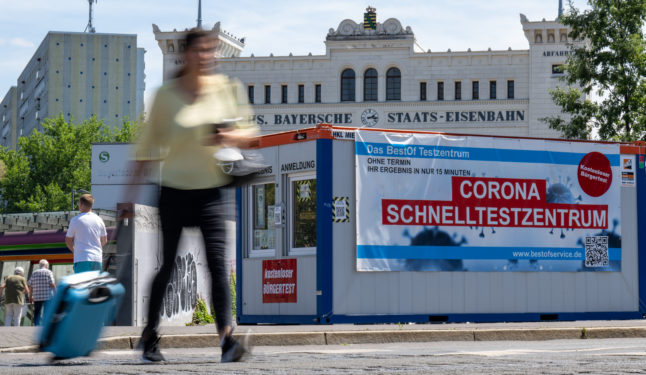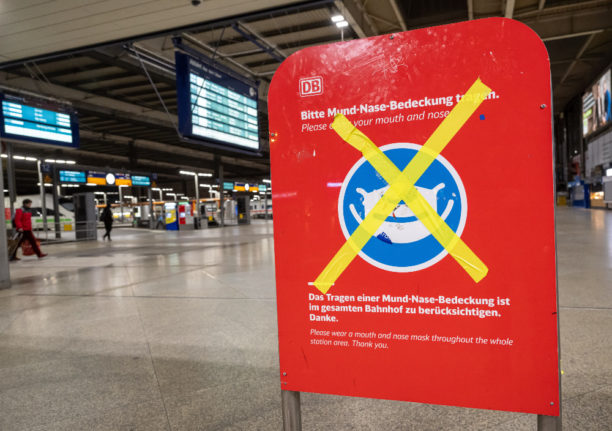Taxpayer-funded free rapid tests – known as Bürgertests – were free to everyone in test centres and pharmacies.
But from Thursday, only some people, including those who can’t be vaccinated for medical reasons, will be allowed to get a free Schnelltest, under the new regulations from the Health Ministry.
Health Minister Karl Lauterbach (SPD) and Finance Minister Christian Lindner (FDP) agreed last week to significantly restrict free rapid tests.
They had been free of charge to the population – with a brief interruption last autumn – since spring of 2021.
But according to Lauterbach, the cost of the taxpayer-funded tests had reached around €1 billion per month.
“The truth is – unfortunately, we can’t afford that in the tight budget situation that awaits us in autumn,” Lauterbach said last week.
There are also concerns over fraud. The government has reportedly spent more than €10.5 billion on free Bürgertests during the pandemic, with suspected fraud of up to €1.5 billion.
“There is always the possibility of fraud,” Lauterbach told broadcaster ZDF on Thursday. However, test centres will now have to document why a test is being carried out, meaning it will be possible to verify via random checks, he said.
For those not entitled to free access, antigen tests will now be charged at a contribution rate of €3.
READ ALSO: Germany to charge €3 for rapid tests
Who will continue to receive free tests?
People who can’t be vaccinated for medial reasons, such as women in the first trimester of pregnancy, will still be entitled to free tests.
Others to continue to receive free access to tests include family carers and people with disabilities, as well as their carers.
Furthermore, household members of people who get Covid, children up to the age of five, and residents and visitors of nursing homes, institutions for people with disabilities and clinics do not have to pay for a rapid test.
Visitors and people receiving treatment or residents in inpatient or outpatient hospital facilities can also get free tests.
People who need proof that they are negative after a Covid-19 infection, so they can go back to work for example, can still get tested for free.
Employees of nursing homes and hospitals should continue to take tests in their facilities, says the Health Ministry.
“Family carers and people with disabilities and their carers will also continue to be able to be tested free of charge,” said Lauterbach. “In doing so, we are expanding the circle of those eligible, but retaining the criterion for doing so: we protect at-risk groups through free Bürgertests.”
Who has to pay €3?
The €3 tests are aimed at people who are attending a possible risk event such as concerts or theatre visits. This is to help prevent so-called superspreader cases, where lots of people can get the virus at once.
A €3 test is also to be charged to people who get a red warning on the Corona-Warn app.
Anyone who wants a test now has to state the purpose of the test.
People who have Covid symptoms should contact their doctor or health care provider who can arrange for a test that is covered by the patient’s health insurance.
The government also plans to reduce the amount that is given to the test centres per antigen test – from the current €11.50 to €9.50.
A total of €6.50 from the federal government will be added to the €3 to reimburse centres.
Among the population, the new regulations have been met with a divided response. Around 47 percent of Germans find the price of €3 reasonable, while 43 percent do not, according to a survey by the opinion research institute YouGov. Ten percent did not give an answer.
It comes as Covid infections have risen dramatically. The Robert Koch Institute (RKI) said the nationwide 7-day incidence on Thursday was 668.6 infections per 100,000 people.
However, experts assume that the number of infections are vastly underreported.



 Please whitelist us to continue reading.
Please whitelist us to continue reading.
Member comments